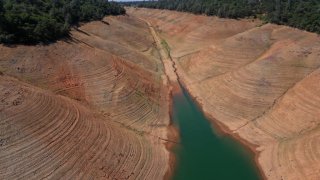
- The Environmental Protection Agency and the U.S. Army want to increase the waterways in the U.S. that receive federal protection.
- The move would reverse a Trump administration rule limiting the waterways that can receive federal protection.
- EPA Administrator Michael Regan said the Trump policy had led to "significant environmental degradation."
The Environmental Protection Agency and the U.S. Army on Wednesday announced their intent to expand the number of waterways that receive protection under the Clean Water Act.
The move would reverse a rule adopted last year by the Trump administration, which limited the bodies of water that could receive federal protection. The Biden administration wants to expand protections to smaller waterways like streams, ditches and wetlands that feed into bigger bodies of water.
EPA Administrator Michael Regan said in a statement that the Trump administration policy had led to "significant environmental degradation."
Get top local stories in Southern California delivered to you every morning. >Sign up for NBC LA's News Headlines newsletter.
The EPA and the Army said they discovered that the Trump rule significantly reduced clean water protections, a major issue as the U.S. West grapples with a severe drought and water supply shortages.
In New Mexico and Arizona, the agencies found that almost all of more than 1,500 streams assessed were non-jurisdictional and thus unable to receive protection from the federal government.
Jaime Pinkham, acting assistant secretary of the Army for Civil Works, said the Trump rule led to a 25% reduction in "determinations of waters that would otherwise be afforded protection."
Money Report
The ruled adopted under Trump, known as the Navigable Waters Protection Rule, reversed a previous attempt by the Obama administration to provide a more expansive definition of "waters of the United States" under the Clean Water Act.
The EPA and the Army Corps of Engineers will consider the latest science and impact of climate change on U.S. waters during the new rulemaking process, according to a press release.
"We are committed to establishing a durable definition of 'waters of the United States' based on Supreme Court precedent and drawing from the lessons learned from the current and previous regulations," Regan said.
The Department of Justice is now filing a motion requesting remand of the rule, according to the release.






